17 start with U start with U
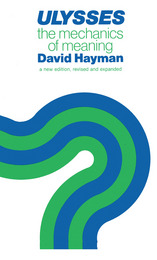

More than 120 years after Oscar Wilde submitted The Picture of Dorian Gray for publication in Lippincott’s Monthly Magazine, the uncensored version of his novel appears here for the first time in a paperback edition. This volume restores all of the material removed by the novel’s first editor.
Upon receipt of the typescript, Wilde’s editor panicked at what he saw. Contained within its pages was material he feared readers would find “offensive”—especially instances of graphic homosexual content. He proceeded to go through the typescript with his pencil, cleaning it up until he made it “acceptable to the most fastidious taste.” Wilde did not see these changes until his novel appeared in print. Wilde’s editor’s concern was well placed. Even in its redacted form, the novel caused public outcry. The British press condemned it as “vulgar,” “unclean,” “poisonous,” “discreditable,” and “a sham.” When Wilde later enlarged the novel for publication in book form, he responded to his critics by further toning down its “immoral” elements.
Wilde famously said that The Picture of Dorian Gray “contains much of me”: Basil Hallward is “what I think I am,” Lord Henry “what the world thinks me,” and “Dorian what I would like to be—in other ages, perhaps.” Wilde’s comment suggests a backward glance to a Greek or Dorian Age, but also a forward-looking view to a more permissive time than his own repressive Victorian era. By implication, Wilde would have preferred we read today the uncensored version of his novel.

Science and the humanities typically offer two different paradigms for thinking about emotion—the first rooted in brain and biology, the second in a social world. With rhetoric as a field guide, Uncomfortable Situations establishes common ground between these two paradigms, focusing on a theory of situated emotion. Daniel M. Gross anchors the argument in Charles Darwin, whose work on emotion has been misunderstood across the disciplines as it has been shoehorned into the perceived science-humanities divide. Then Gross turns to sentimental literature as the single best domain for studying emotional situations. There’s lost composure (Sterne), bearing up (Equiano), environmental hostility (Radcliffe), and feeling mixed (Austen). Rounding out the book, an epilogue written with ecological neuroscientist Stephanie Preston provides a different kind of cross-disciplinary collaboration. Uncomfortable Situations is a conciliatory work across science and the humanities—a groundbreaking model for future studies.
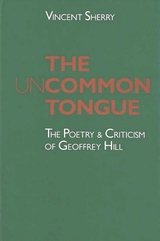

Under Briggflatts is organized in three large chapters, one devoted to each decade. In the 1960s, Davie pays particular attention to the work of Austin Clarke, Hugh MacDiarmid, Norman McCaig, Keith Douglas, Edwin Muir, Basil Bunting (the gurus whose prose writings helped catalyze the traumatic events of 1968), Elaine Feinstein, Sylvia Townsend Warner, Philip Larkin, Charles Tomlinson, Thomas Kinsella, and Ted Hughes. The second chapter follows these figures into the new decade and explores the work of (among others) Thom Gunn, C. H. Sisson, R. S. Thomas, John Betjeman, and such themes as women's poetry, translation, poetic theory, and the later impact of T. S. Eliot and of Edward Thomas. Perhaps the most controversial chapter is the third, in which David—without abandoning the poets already introduced—assesses Geoffrey Hill, Tony Harrison, and Seamus Heaney, and looks too at the recovery of Ivor Gurney's poems, at Ted Hughes as Laureate, the posthumous work of Sylvia Townsend Warner, the burgeoning Hardy industry, and the critical writings of Kenneth Cox.

"Powell is one of the great novelists of our time, much more interested in other people than in his own views and ideas. The result is that his extraordinary richness of act and detail also embodies a far more arresting and penetrating quantity of critical judgements on books, authors, fashions, developments, than are to be found in the theoretical pronouncement of modern academic criticism."—John Bayley, The Sunday Times
"These delightful reviews could be said to amount to a latter-day Brief Lives."—David Plante, Times Literary Supplement
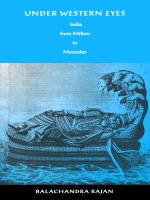
Rajan begins with the Portuguese poet Camões, whose poem celebrating Vasco da Gama’s passage to India becomes, according to its eighteenth-century English translator, the epic of those who would possess India. He closely examines Milton’s treatment of the Orient and Dryden’s Aureng-Zebe, the first English literary work on an Indian subject. Texts by Shelley, Southey, Mill, and Macaulay, among others, come under careful scrutiny, as does Hegel’s significant impact on English imperial discourse. Comparing the initial English representation of its actions in India (as a matter of commerce, not conquest) and its contemporaneous treatment of Ireland, Rajan exposes contradictions that shed new light on the English construction of a subaltern India.
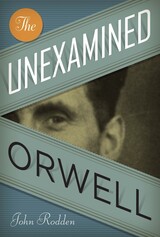
The year 1984 is just a memory, but the catchwords of George Orwell's novel Nineteen Eighty-Four still routinely pepper public discussions of topics ranging from government surveillance and privacy invasion to language corruption and bureaucratese. Orwell's work pervades the cultural imagination, while others of his literary generation are long forgotten. Exploring this astonishing afterlife has become the scholarly vocation of John Rodden, who is now the leading authority on the reception, impact, and reinvention of George Orwell—the man and writer—as well as of "Orwell" the cultural icon and historical talisman.
In The Unexamined Orwell, Rodden delves into dimensions of Orwell's life and legacy that have escaped the critical glare. Rodden discusses how several leading American intellectuals have earned the title of Orwell's "successor," including Lionel Trilling, Dwight Macdonald, Irving Howe, Christopher Hitchens, and John Lukacs. He then turns to Germany and focuses on the role and relevance of Nineteen Eighty-Four in the now-defunct communist nation of East Germany. Rodden also addresses myths that have grown up around Orwell's life, including his "more than half-legendary" encounter with Ernest Hemingway in liberated Paris in March 1945, and analyzes literary issues such as his utopian sensibility and his prose style. Finally, Rodden poses the endlessly debated question, "What Would George Orwell Do?," and speculates about how the prophet of Nineteen Eighty-Four would have reacted to world events. In so doing, Rodden shows how our responses to this question reveal much about our culture's ongoing need to reappropriate "Orwell."

The Unremarkable Wordsworth was first published in 1987. Minnesota Archive Editions uses digital technology to make long-unavailable books once again accessible, and are published unaltered from the original University of Minnesota Press editions.
William Wordsworth was attacked by the critics of his time for imposing unremarkable sights and sentiments on his audience. In this book's title essay, an exemplary reading of the Westminster Bridge sonnet, Geoffrey Hartman shows how Wordsworth's "unremarkable phrases" attain their curious vigor. Drawing upon the propositions of semiological analysis—that signs are not signs unless they become perceptible, through the contrast between "marked" and "unmarked"—Hartman, in a deft and sensitive analysis, is able to play these notions of marking and the unremarkable off against each other. Wordsworth, in the end, overcomes both his critics and the science of signs: his quiet sonnet—with its muted or near-absent signs—is itself, as epitaph for an era, a faithful sign of the times.
Hartman's capacity to open up a dialogue between contemporary theory and Wordsworth's poetry informs all of these essays, written since the 1964 publication of Wordsworth's Poetry, a book that marked an epoch in the study of that poet and of Romantic poetry in general. In the years since then, the nature of literary study has changed dramatically, and Hartman has been a leader in the turn to theoretical modes of interpretation. The fifteen essays in The Unremarkable Wordsworth draw upon a wide range of contemporary theoretical approaches, from psychoanalysis to structuralism, from deconstruction to phenomenology. Yet, as Donald Marshall points out in his foreword, "Wordsworth remains so much the focus of this book that 'critical method' is strangely transmuted." For Hartman, reading and thinking are inseparable; he has an uncanny power to convey in an intensified form the poet's own consciousness, not under the rubric of "intertextuality" but because he "has ears to hear."
Geoffrey H. Hartman is Karl Young Professor of English and Comparative Literature at Yale University. His most recent book is Easy Pieces. Donald G. Marshall is a professor of English at the University of Iowa.
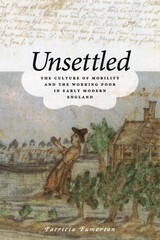
Migrants made up a growing class of workers in late sixteenth- and seventeenth- century England. In fact, by 1650, half of England’s rural population consisted of homeless and itinerant laborers. Unsettled is an ambitious attempt to reconstruct the everyday lives of these dispossessed people. Patricia Fumerton offers an expansive portrait of unsettledness in early modern England that includes the homeless and housed alike.
Fumerton begins by building on recent studies of vagrancy, poverty, and servants, placing all in the light of a new domestic economy of mobility. She then looks at representations of the vagrant in a variety of pamphlets and literature of the period. Since seamen were a particularly large and prominent class of mobile wage-laborers in the seventeenth century, Fumerton turns to seamen generally and to an individual poor seaman as a case study of the unsettled subject: Edward Barlow (b. 1642) provides a rare opportunity to see how the laboring poor fashioned themselves, for he authored a journal of over 225,000 words and 147 pages of drawings. Barlow’s journal, studied extensively here for the first time, vividly charts what he himself termed his “unsettled mind” and the perpetual anxieties of England’s working and wayfaring poor. Ultimately, Fumerton explores representations of seamen as unsettled in the broadside ballads of Barlow’s time.
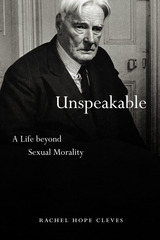
Unspeakable approaches Douglas as neither monster nor literary hero, but as a man who participated in an exploitative sexual subculture that was tolerated in ways we may find hard to understand. Using letters, diaries, memoirs, police records, novels, and photographs—including sources by the children Douglas encountered—Cleves identifies the cultural practices that structured pedophilic behaviors in England, Italy, and other places Douglas favored. Her book delineates how approaches to adult-child sex have changed over time and offers insight into how society can confront similar scandals today, celebrity and otherwise.
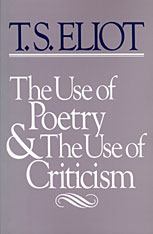
The 1932–33 Norton Lectures are among the best and most important of T. S. Eliot’s critical writings. Tracing the rise of literary self-consciousness from the Elizabethan period to his own day, Eliot does not simply examine the relation of criticism to poetry, but invites us to “start with the supposition that we do not know what poetry is, or what it does or ought to do, or of what use it is; and try to find out, in examining the relation of poetry to criticism, what the use of both of them is.”
Eliot begins with the appearance of poetry criticism in the age of Dryden, when poetry became the province of an intellectual aristocracy rather than part of the mind and popular tradition of a whole people. Wordsworth and Coleridge, in their attempt to revolutionize the language of poetry at the end of the eighteenth century, made exaggerated claims for poetry and the poet, culminating in Shelley’s assertion that “poets are the unacknowledged legislators of mankind.” And, in the doubt and decaying moral definitions of the nineteenth century, Arnold transformed poetry into a surrogate for religion.
By studying poetry and criticism in the context of its time, Eliot suggests that we can learn what is permanent about the nature of poetry, and makes a powerful case for both its autonomy and its pluralism in this century.
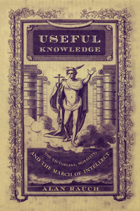
Rauch discusses both the influence and the ideology of knowledge in terms of how it affected nineteenth-century anxieties about moral responsibility and religious beliefs. Drawing on a wide array of literary, scientific, and popular works of the period, the book focusses on the growing importance of scientific knowledge and its impact on Victorian culture. From discussions of Jane Webb Loudon’s The Mummy! and Mary Shelley’s Frankenstein, to Charlotte Brontë’s The Professor, Charles Kingsley’s Alton Locke, and George Eliot’s Mill on the Floss, Rauch paints a fascinating picture of nineteenth-century culture and addresses issues related to the proliferation of knowledge and the moral issues of this time period. Useful Knowledge touches on social and cultural anxieties that offer both historical and contemporary insights on our ongoing preoccupation with knowledge.
Useful Knowledge will appeal to readers interested in nineteenth century history, literature, culture, the mediation of knowledge, and the history of science.

“The history of interpretation, the skills by which we keep alive in our minds the light and dark of past literature and past humanity, is to an incalculable extent a history of error.” So writes Frank Kermode of a history to which he has contributed many luminous pages. This book is a record of Kermode’s “error,” his wandering through literature past and present. He notes that “in thirty-odd years I have written several hundred reviews, an example I would strongly urge the young not to follow.” From these hundreds Kermode has selected the pieces he treasures most, and they provide an example that indeed will be difficult to follow.
The Uses of Error contains some of Kermode’s very best writing. Again and again he proves himself to be more than a commentator or chronicler; he is rather a creator of cultural value in his interaction with the texts at hand. The appeal of this book is broad. Everything is here from Augustine to Ariès on death and dying, from Wilde to Woolf and writer’s block, from Joachim of Fiore to Flaubert’s Parrot. In a phrase or an aside on any of these subjects Kermode can open a vista, wither a reputation, or spotlight an intellectual mantrap.
The core of the volume is a group of essays on the central figures of modern English literature. Kermode tells more here—about Tennyson, Shaw, Forster, and Eliot—than most people could in twice the space. His brief, vivid, and sympathetic writings extol the range of British writing and mark out the difference between an interest that is solely academic and the richer view of one who writes from inside the culture and shares a common experience with its interpreters.
There is also Kermode the man. He saves a set of autobiographical essays until the end, and they are a veritable dessert for those who read the volume straight through. But they will stand first in the reader’s memory afterward, because they give body to the mind so clearly in evidence throughout the book. Kermode shows us the means by which he gained the perspective to become a transnational critic—not a critic on the margin, but one who shows us where the margins are. For anyone who is not yet familiar with Frank Kermode’s work, this is the place to begin. For those who are already acquainted with it, here is the chance to see the pattern of the whole.

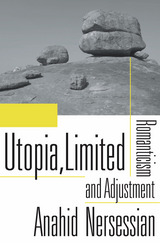
What is utopia if not a perfect world, impossible to achieve? Anahid Nersessian reveals a basic misunderstanding lurking behind that ideal. In Utopia, Limited she enlists William Blake, William Wordsworth, John Keats, and others to redefine utopianism as a positive investment in limitations. Linking the ecological imperative to live within our means to the aesthetic philosophy of the Romantic period, Nersessian’s theory of utopia promises not an unconditionally perfect world but a better world where we get less than we hoped, but more than we had.
For the Romantic writers, the project of utopia and the project of art were identical. Blake believed that without limits, a work of art would be no more than a set of squiggles on a page, or a string of nonsensical letters and sounds. And without boundaries, utopia is merely an extension of the world as we know it, but blighted by a hunger for having it all. Nersessian proposes that we think about utopia as the Romantics thought about aesthetics—as a way to bind and thereby emancipate human political potential within a finite space.
Grounded in an intellectual tradition that begins with Immanuel Kant and includes Theodor Adorno and Northrop Frye, Utopia, Limited lays out a program of “adjustment” that applies the lessons of art to the rigors of life on an imperiled planet. It is a sincere response to environmental devastation, offering us a road map through a restricted future.

READERS
Browse our collection.
PUBLISHERS
See BiblioVault's publisher services.
STUDENT SERVICES
Files for college accessibility offices.
UChicago Accessibility Resources
home | accessibility | search | about | contact us
BiblioVault ® 2001 - 2024
The University of Chicago Press









